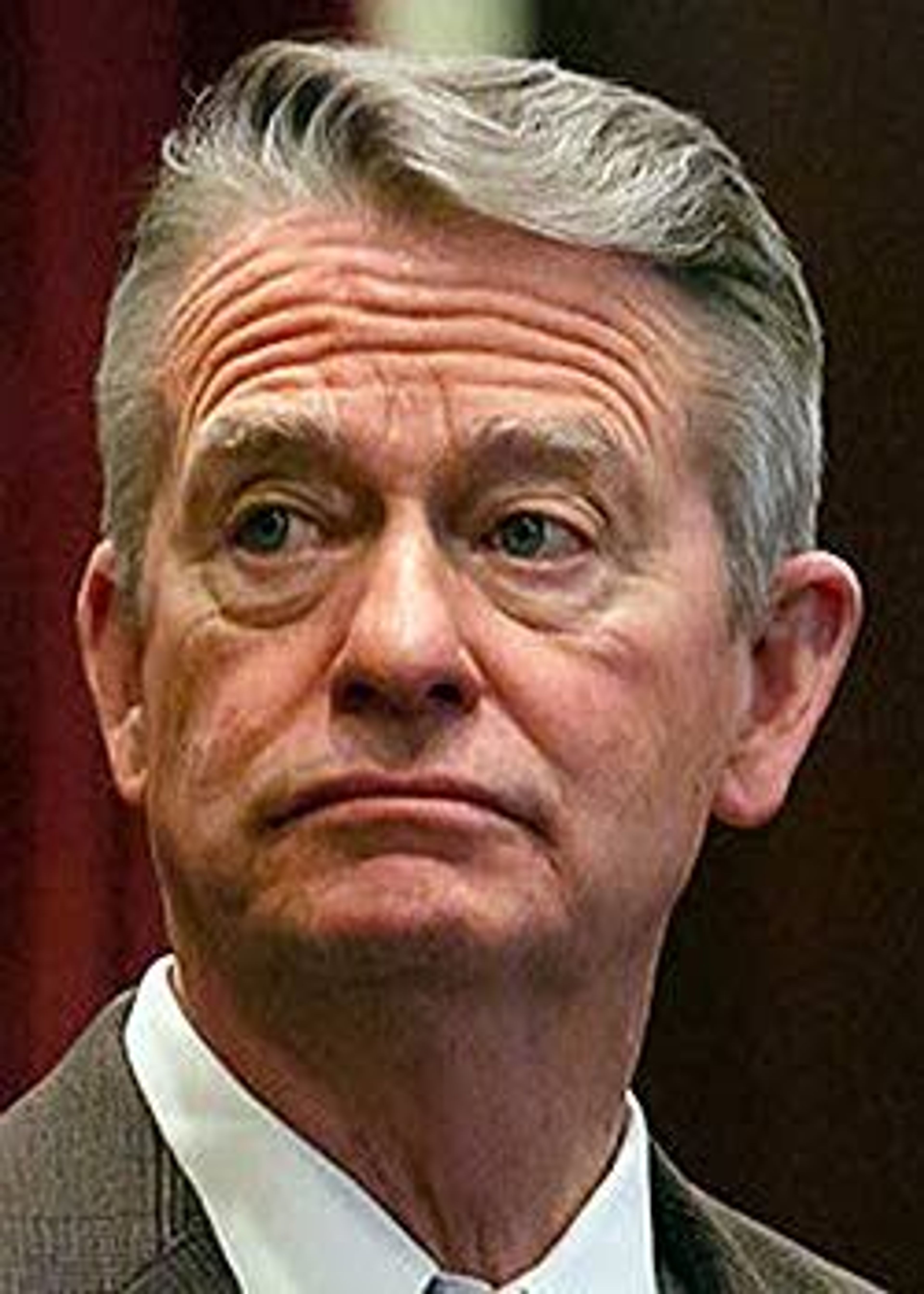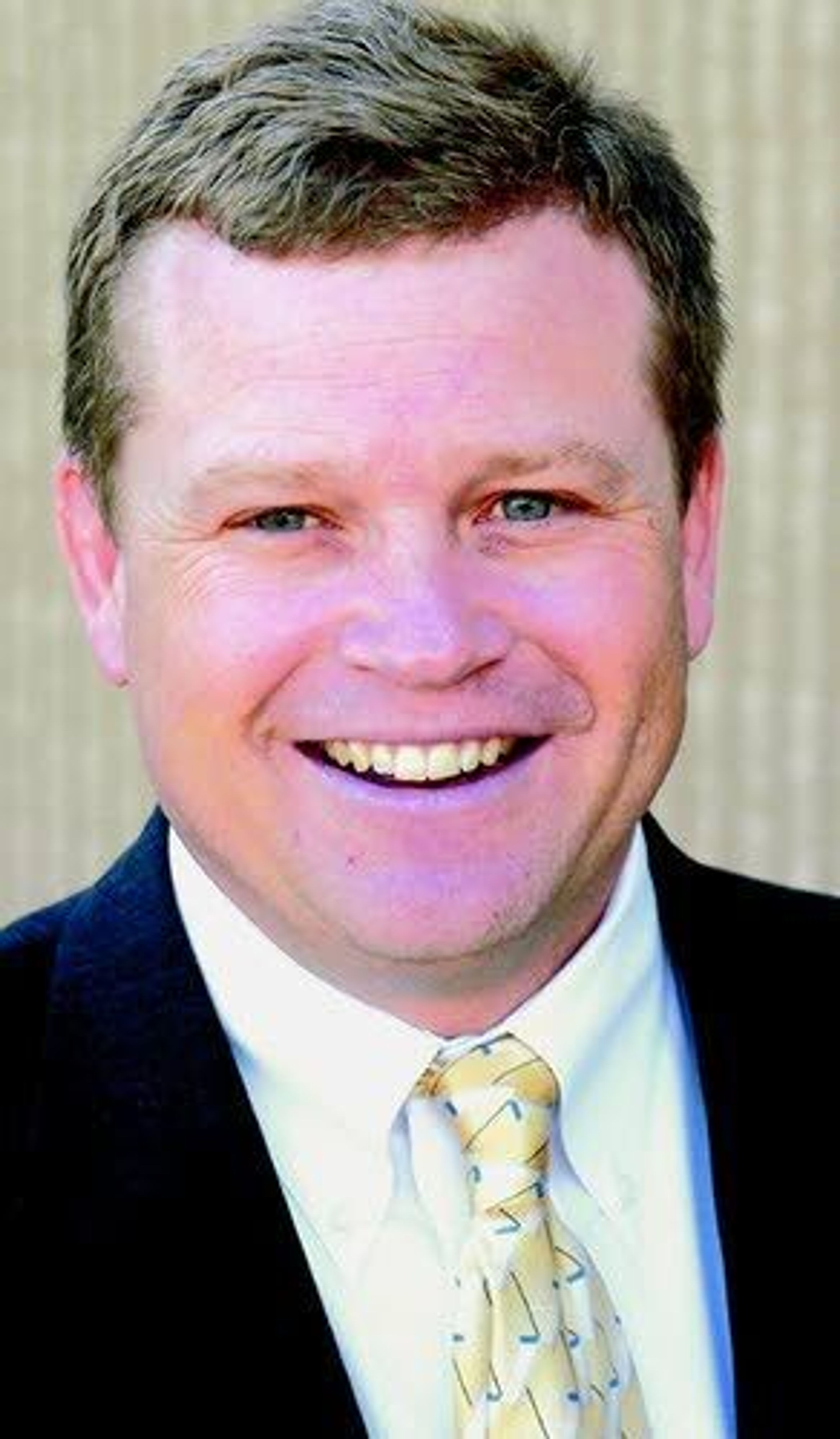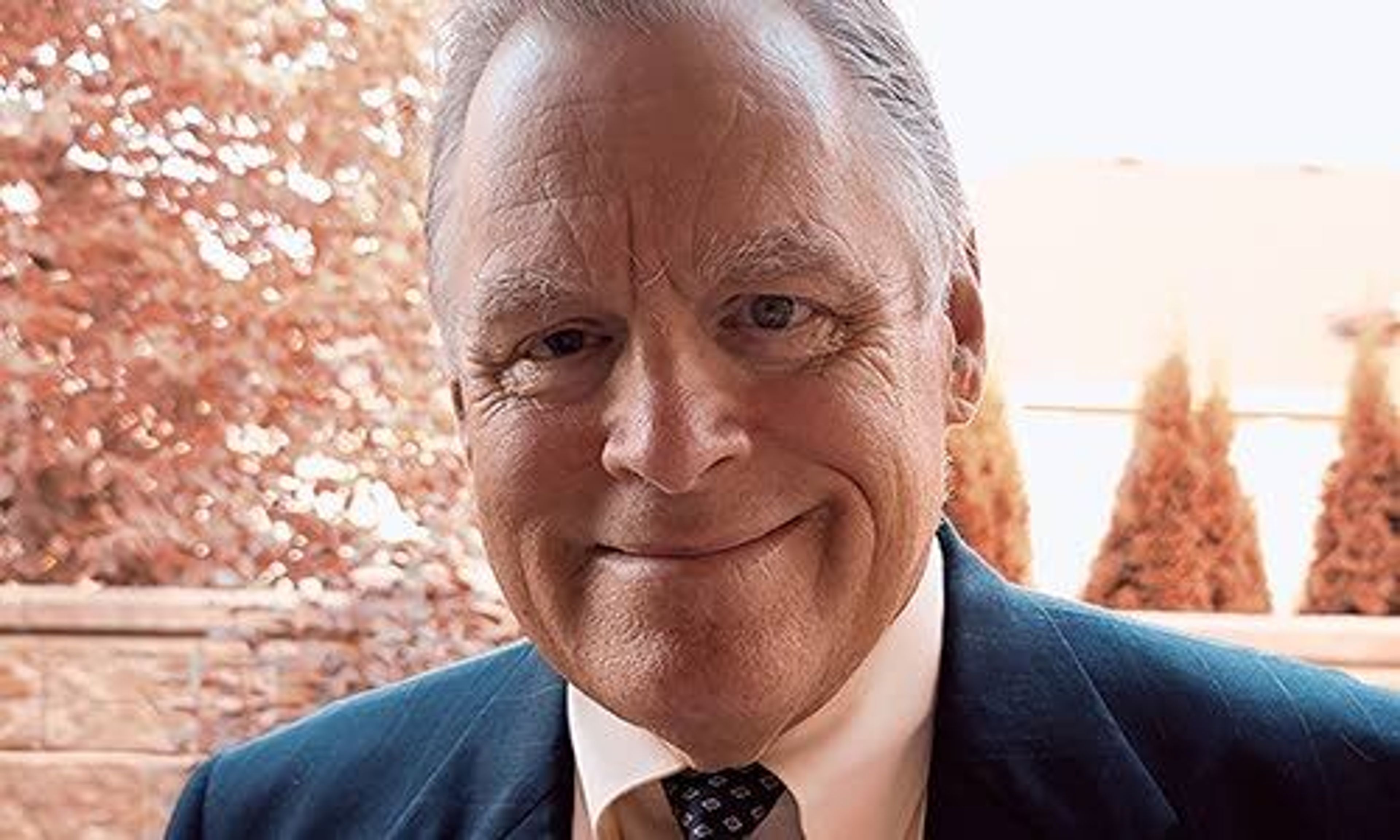Year End Edition Cheers & Jeers: Uncork the champagne bottles
The Tribune’s Opinion
Good morning and welcome to the Academy of Cheers & Jeers Arts and Sciences awards for 2020.
———
For conspicuous service against a deadly pandemic, the nominees are:
Dr. Kenneth Krell of Idaho Falls. A critical care specialist at Eastern Idaho Regional Medical Center, Krell brought the same level of passion to preventing the spread of COVID-19 this year as he did several years ago in his quest to expand Medicaid coverage to Idaho’s neediest citizens.
He knows what he’s talking about. If a patient gets sick enough, he’ll end up seeking help from an intensive care unit much like the one Krell supervises.
Above all, he urged Idaho Gov. Brad Little to impose a statewide face mask mandate. When that didn’t happen, Krell and his colleagues on the State of Idaho Disaster Medical Advisory Committee issued a public warning — nearly two months ago — about how escalating caseloads would trigger the need for crisis care.
Throughout it all, Krell has been a consistent truth-teller to those in power.
“I don’t know how to keep my mouth shut,” he recently told a reporter.
Washington Gov. Jay Inslee. He was the earliest and the most stringent about implementing health protocols, including a statewide face mask mandate with enforceable penalties. He’s also taken his neighbor, Gov. Little, to task for his relatively laissez-faire approach, which has brought more infections to Washington’s border towns and more patients to the state’s hospitals.
“I don’t want to sound too judgmental but in a sense I am,” he said. “Every death in Spokane County, when thinking it might’ve come from Idaho when Idaho is not joining us in wearing masks — that’s very painful to me.”
On a typical day, Washington’s positivity index is a fraction of what you’ll find in the Gem State and its average number of infections per capita runs about half that of Idaho’s.
Moscow Mayor Bill Lambert, Lewiston City Councilors John Bradbury and Bob Blakey, and Boise Mayor Lauren McLean. They represent an effort at the local level to fill in the gaps left by Gov. Little’s refusal to impose a statewide standard. Moscow was among the first to act. McLean stepped in with a mandate that includes crucial enforcement provisions against businesses that do not require compliance. And while the ordinance Bradbury and Blakey passed lacked McLean’s provisions, it prevailed against determined opposition.
“If you want to talk about freedom,” Bradbury said at one point, “there’s nothing less free than being dead.”
Idaho Secretary of State Lawerence Denney and Ada County Clerk Phil McGrane.
Denney, the state’s chief elections officer, managed a first-of-its-kind all-absentee primary in the midst of a spring stay-at-home order. With limited time to prepare, Denney implemented a system that got absentee ballot applications into the homes of registered Idaho voters and he extended the deadlines to give them more time to act.
Idahoans responded enthusiastically. More than 328,000 Idahoans voted in the primary — the largest number of ballots cast in such an election — and at 39 percent, turnout was as high as it had been in four decades.
McGrane built on that experience. The fall general election would feature in-person voting, but many of the people who filled in their ballots at home during the primary intended to do so again. McGrane persuaded state lawmakers to relax some deadlines and allow local elections officers to process — but not count — absentee ballots. The result: Idaho’s hybrid of enhanced absentee balloting and in-person voting went off smoother than just about any other state in the country.
Principal Kevin Driskill and the staff at Lewiston High School. The pandemic had taken so much from the Class of 2020 — including final weeks of in-person instruction, social interaction, athletics and proms. A traditional commencement exercise was also outside of the question.
So Driskill and staff innovated with the May 30 “Parade of Graduates,” a 90-minute automobile procession that allowed each graduate a chance to shine during a trek from Lewis-Clark State College to the historic high school on Normal Hill and then concluding at the new high school that was still under construction.
“At first I was disappointed we weren’t having a regular graduation, but now that it’s happening, I’m having a lot of fun,” Yzabella Ahlstrom, 18, said with a big smile.
And the CHEER goes to ... Krell.
n n n
For abdication in the face of COVID-19, the nominees are:
Idaho Gov. Little. As the crisis gathered speed early in the spring, Little performed admirably. Among other things, he imposed a stay-at-home order for nonessential workers and shut down sources of infection such as bars and restaurants. Following science, not politics, Little flattened Idaho’s rising rate of infections and avoided overwhelming the state’s health care system.
The flak he took from the right intimidated him. Once he had reopened the state’s economy, Little stepped back and refused to lead. So what if cases were surging? What difference did it make if Idaho’s numbers were higher than many of its neighboring states, where governors had acted?
Businesses that had been closed in other states remained open in Idaho.
There would be no statewide face mask mandate.
Officials at the regional health district, school district, city or county level were welcome to step in. But it often meant enduring protesters, some of whom were willing to take the fight to the official’s home.
“The no-action approach to dealing with COVID-19 is not a responsible option,” Little said, the irony not withstanding.
And the worst could be ahead as the state confronts an expected post-holiday surge and the implementation of crisis care standards.
House Speaker Scott Bedke, R-Oakley, and his fellow legislative leaders. Three times they staged superspreader events with no regard toward the public health. First came the onset of COVID-19 in March. With the pandemic all around them, lawmakers refused to adjourn until they passed bills to victimize transgender citizens.
In August, they returned to Boise for a special session. With a surge in cases, they refused to wear face masks or socially distance.
That same pattern emerged in December when the newly elected Legislature reorganized itself.
And unlike their colleagues in other states — such as Wyoming, which will delay its session until spring, or Washington, where much of the proceedings will be done remotely — Bedke is plowing ahead with a regular session beginning Jan. 11 where hundreds of people will gather in the state Capitol, free of any restrictions, at the worst possible time.
Whether it’s concerns expressed by Democratic legislators or advocates for disabled Idahoans, the answer is always the same: Bedke can’t do it or won’t do it.
Lt. Gov. Janice McGeachin. What a year she’s had. Not three hours after Little had announced his response to the pandemic in March, McGeachin was already undermining him. She never stopped.
When Hardware Brewing Co. of Kendrick chose to openly defy the governor, McGeachin was on hand.
If there was a rally organized to attack the governor, she was on board.
Little’s relatively benign rollback of orders in October was met by a video of McGeachin carrying a Bible and placing an automatic handgun on top of it.
In a virtual press conference last month, she followed President Donald Trump’s mantra by pitching the discredited idea of disinfection tubes for the state Capitol.
Can you imagine McGeachin as Idaho’s next governor?
She can.
Idaho Freedom Foundation President Wayne Hoffman. Look elsewhere for a positive contribution to the public interest. In the midst of Idaho’s worst public health crisis in a century, this man chose to be a menace.
He encouraged professional anarchist Ammon Bundy’s Easter Sunday service, which violated public health guidelines.
He made hyperbolic attacks on Little and others: The governor had torn up the Constitution, politicians had become “rulers” while the rest of us were “prisoners or slaves.”
Hoffman’s Disobey Idaho campaign produced superspreader rallies at the state Capitol as well as in downtown Lewiston.
When one of his minions defied a closed park order and goaded a Meridian cop to arrest her, Hoffman’s staff posted the arresting officer’s name and face on Facebook. Bundy’s mob showed up at the officer’s home.
Finally, the man who declared Idaho’s public schools to be pillars of socialism, who would withhold Medicaid from needy Idahoans and would shut down National Public Radio barely blinked before taking $129,883 from the federal government’s Paycheck Protection Program.
His defense was classic whataboutism: “I knew that the socialists we fight everyday wouldn’t have similar reservations and they’d use this moment to advance their awful policy ideas,” he wrote. “We couldn’t let that happen.”
Ammon Bundy. Chaos is Bundy’s calling card. The man whose resume includes armed insurrections at Bunkerville, Nev., in 2014, and then again in 2016 when he seized and held at gunpoint the Malheur National Wildlife Refuge near Burns, Ore., dispersed his mob to the home of that Meridian police officer in April.
The next month, he was telling a Statehouse rally that Little’s response to COVID-19 was analogous to the Holocaust: “When you have faced so much tyranny in your life, there is a point when you would rather line up naked and get shot in the head.”
His strong-arm tactics were employed against the Southwest District Health Department offices in Caldwell in July, the Legislature’s special sessions the following month and even a high school football game at Caldwell.
And as the next legislative session approaches, Bundy’s People’s Rights group is organizing along military lines and preparing for another fight.
Christ Church and its pastor, Doug Wilson, of Moscow. Start here: Nobody every contemplated enforcing Moscow’s face mask ordinance during church services. It was the parishioners who decided to take their battle to the secular square.
In September, they showed up unmasked outside city hall, forcing the police to issue citations. But they got what they wanted: plenty of attention from Fox News and a supportive — albeit inaccurate — tweet from President Donald Trump.
Then they tried to intimidate a private business into noncompliance with the ordinance. Tri-State Outfitters wasn’t Walmart and in the current business environment, it probably needs every customer it can get through its doors. But the business chose the health and safety of its workers and customers and closed its doors after Wilson’s crew arrived.
“The short-term profit is not worth the long-term risk,” Tri-State Outfitters President and CEO Joe Power wrote in a Facebook post.
And the JEER goes to ... Hoffman.
n n n
In the profiles in courage category, the nominees are ...
Idaho Attorney General Lawrence Wasden. Idaho’s eight legislative leaders, including Bedke and Senate President Pro Tem Chuck Winder, tried to pressure Wasden into signing on to Texas Attorney General Ken Paxton’s legal attempt to steal the presidential election. Paxton proposed to toss President-elect Joe Biden’s victories in four battleground states, thereby throwing the election to the U.S. House of Representatives, where the rules give the GOP the upper hand.
Never mind that the premise was legally flawed — the Supreme Court unanimously rejected it.
Never mind that Paxton’s lawsuit was pocked with errors.
And never mind that Paxton himself may be looking for one of Trump’s pardons.
Idaho Gov. Little gave the idea his support.
So did Lt. Gov. McGeachin.
As did Idaho Congressmen Russ Fulcher and Mike Simpson.
In fact, Wasden’s colleagues in 17 states that Trump carried went along with Paxton.
But Wasden refused. It wasn’t a matter of politics. It was about the law and states’ rights. If Texas can invalidate the vote in other states, Wasden reasoned, what’s to prevent another state from butting into Idaho’s affairs?
Wasden found himself in a lonely circle of attorneys general from Republican states — Kentucky Attorney General Daniel Cameron, New Hampshire Attorney General Gordon MacDonald and Wyoming Attorney General Bridget Hill — who stood on principle.
Five of Wasden’s predecessors — Tony Park (1971-1975), Wayne Kidwell (1975-1979), David Leroy (1979-1983), Jim Jones (1983-1991) and Al Lance (1995-2003). Park is a Democrat. Kidwell, Leroy, Jones and Lance were elected as Republicans. Kidwell and Jones also served on the Idaho Supreme Court.
In unison, they urged Gov. Little to veto the Idaho Legislature’s attempt to ban transgirls and women from participating in public school and collegiate athletics. It was a sure loser in the federal courts, they said. That was the same advice Wasden delivered.
“Our state has been in this position a number of times during our respective tenures as attorney general and rather more so during the incumbent’s tenure,” they wrote. “Disregarding his sound advice has been costly for our state. It could well be with regard to House Bill 500.”
Little failed to take heed, and the law is now mired in court battles.
Mark Domino of Clarkson. In the face of repeated injustices, he stood firm — when many people might have been tempted to walk away.
His ordeal began in late June 2019 with a case of racial profiling that became all the more clear with the passage of time. Acting on a false report of a Black man prowling cars at the Clarkston Walmart, police confronted Domino, an African American Walmart employee who was opening the doors of his wife’s car. They interrogated him. They escalated the confrontation. They got into a physical scuffle. Domino was handcuffed, shocked with a stun gun and hauled into court on charges of resisting arrest and obstructing police officers.
For 15 months, he insisted on justice. He refused City Attorney Todd Richardson’s one-sided plea bargain. Nor would he agree to waive his right to sue the city in exchange for dismissing the charges.
In the end, he collected a $25,000 check from the city and the charges against him were dropped.
“This was never about the money for me,” Domino told the Lewiston Tribune’s Kerri Sandaine. “Dismissing the charges is something they could have done from day one. The main thing I wanted was an apology, but instead I was persecuted. This should not have happened, and I don’t want it to happen to anyone else. I just want to thank all of the people who supported me through this crazy ordeal.”
And the CHEER goes to ... Domino.
n n n
In the category of worst performance by a member of the region’s members of Congress during Trump’s last year in office, the nominees are ...
l Sen. Jim Risch, R-Idaho. Chairman of the Foreign Relations Committee and a member of the Intelligence Committee, he had virtually nothing to say about credible reports indicating that Russians had placed bounties on American military service people in Afghanistan. The reporting, he said, was “grossly inaccurate.”
He showed a rare flash of backbone in November when he acknowledged to Orion Donovan-Smith of the Spokesman-Review that Biden had won the election — only to quickly retreat when others asked for confirmation.
l Sen. Mike Crapo, R-Idaho. Twice he took hyprocrisy to new heights. The man who considered former President Bill Clinton’s perjury and obstruction of justice so pernicious that he voted for impeachment six times twisted himself into a legal pretzel by declaring the charges brought against Trump fell “short of the high threshold for removal of a U.S. president from office, and undermine Americans’ constitutional right to elect their president at the ballot box.”
Next, the man who four years ago argued President Barack Obama should not get his Supreme Court pick confirmed in an election year went right ahead and supported Trump’s nominee, Amy Coney Barrett, on Oct. 26 — one week before the election.
l Rep. Cathy McMorris Rodgers, R-Wash., as well as Congressmen Russ Fulcher and Mike Simpson, both R-Idaho. They joined 123 of their GOP colleagues in supporting Texas Attorney General Paxton’s attempt to steal the election. It was, as former Republican presidential campaign operative Steve Schmidt said, an act of betrayal: “They turned their backs on the tradition of American democracy.”
From McMorris Rodgers, who has played the party loyalist, and Fulcher, who finished his first term ranked 422nd least bipartisian member — out of 437 — this is hardly surprising.
But from Simpson, who built a 22-year career as an exemplar of comity and reasonableness, you expected far better. What was left of that reputation after Simpson made a false equivalency between white nationalism and Black Lives Matter during two separate televised debates with Democratic challenger Aaron Swisher was eviscerated by his support of the Paxton gambit.
And the JEER goes to ... Simpson.
— M.T.




















